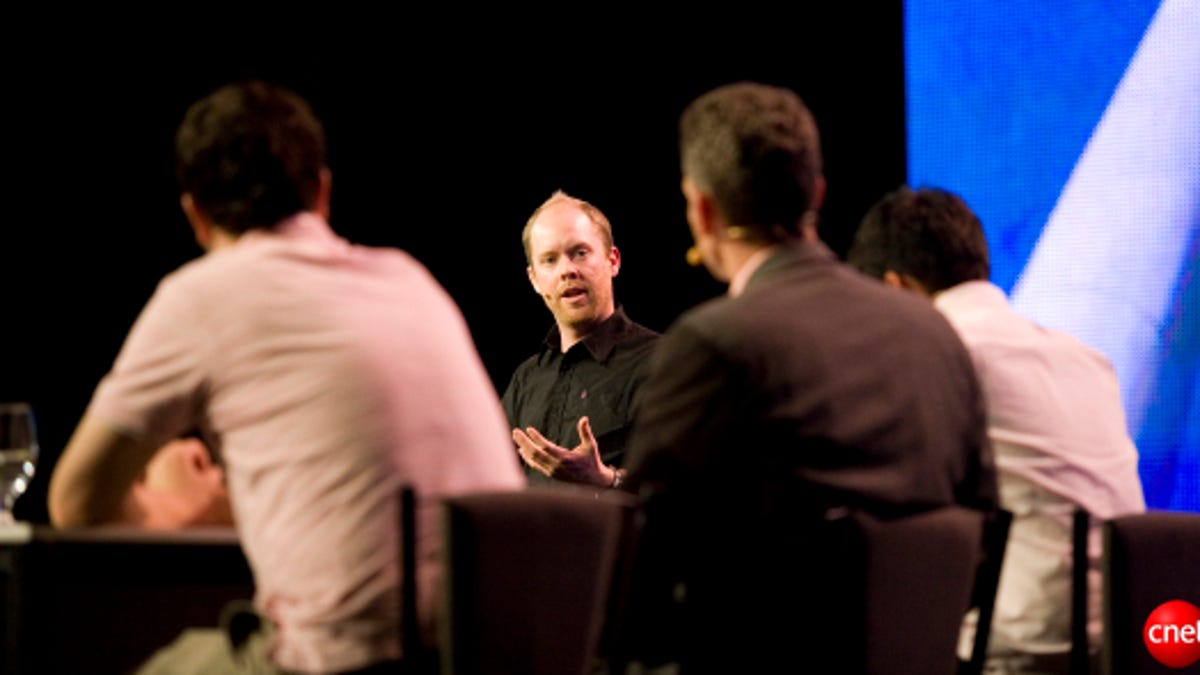Launch Pad at Web 2.0 Expo: Crawlers in the sky
Five CEOs pitch their new businesses. Four are really smart.

The mini-Demo conference at the Web 2.0 Expo is the Launch Pad, where five start-up companies pitched to a small panel of experts (Marshall Kirkpatrick of ReadWriteWeb, Matt Marshall of VentureBeat, and Anand Iyer of Microsoft) and a moderate audience spread out across a very large hall. Of the five pitches, I found four very smart (read the summaries to figure out which one didn't get my nod) and of those, one appeared to be a genuinely new idea. That would be the first company in this run-down. (The audience, though, liked Nitobi the best.)
80legs is building a platform for "Web-scale" applications, which it defines as apps that deal with the ocean of data and transactions, just like a search engine (like Google) does. The service crawls up to two billion pages a day, the pitchman said. 80legs lets you run scripts against that corpus of knowledge, and for a reasonable fee: $2 per million pages looked at plus 3 cents per CPU hour. The service could be used to analyze Web-wide trends, scan for content that pops up on it, and, of course, for new search engines. It's a really interesting subset of cloud computing: a crawler for rent in the sky, as it were. I am very curious to see what people do (if anything) with this platform. 80legs "data center" is made up of a mesh of computers enabled by Plura Processing technology.
Bantam Networks is an online workspace for businesses that's entering private beta today. It's a combination of a nanoblog "activity stream," a task list, a file store, and so on. There are, of course, dozens if not hundreds of workflow apps out there, and more and more are taking on Web 2.0 aesthetics and getting Web 2.0 features, like this one. Bantam also pulls in personal data and updates from other Web 2.0 sources, like Twitter and LinkedIn, which is smart. The on-stage demo was strong, and in a vacuum, this would be a strong service for work groups. However, as I said, this is a crowded space and it's evolving very fast.
DubMeNow is trying to solve the business card problem: the fact that most cards get lost or forgotten, or at the best, put into a database where their information slowly becomes out of date. DubMeNow is a mobile app, runs on several types of phones, and lets you send and receive electronic cards, which then feed into your contact list. Remember the Palm Pilot's infrared card beaming? This is the same thing, except the data goes over the Internet and is stored on a server as well as on your devices. I don't want to be too harsh, because I, for one, desperately need a better solution for business cards, but this one rings flat to me. As inefficient as business cards are, they are part of an important social ritual that everyone understands. I don't know how DubMeNow gets a step in this dance. See also: Plaxo.
Nitobi is launching PhoneGap, a tool for building apps for smart phones. Developers write their apps in HTML and Javascript, and PhoneGap will make the app run on multiple devices--eventually (just iPhone and Android so far). It's an open-source project, and so far there are more than 50 apps in the iPhone app store that have been built with it. Eventually the company will also offer app store integration to push apps out to the various and different stores. Success here is measured in apps built on it, and it looks like the platform is getting traction.
ZeaLog is a Web app to help you meet your goals--to collect data, log it, and share it. The presenter, Aaron Hurley, used it to track his weight when he wanted to lose it. I'm of a mind to reduce my daily lunch expenses, so I might give it a try for that. Hurley points out that although there are dozens of personal tracking sites for weight loss, quitting smoking, and so on, each of those personal improvement tasks is an industry, most of which have giant global advertising spends. This is not a ground-breaking new idea, but it does look like a very smart business built on top of a useful service. My advice, though, is not to go to this service looking for a personal improvement task, but rather remember it for the future when you finally realize you want to get serious and lose weight, drink more water, drive more slowly, or what have you.

